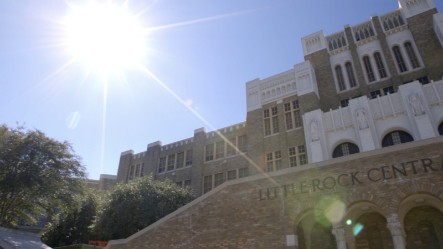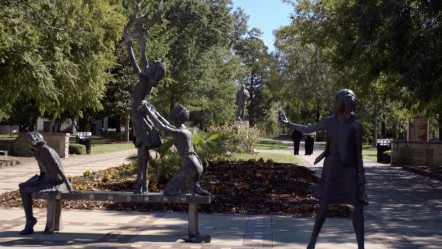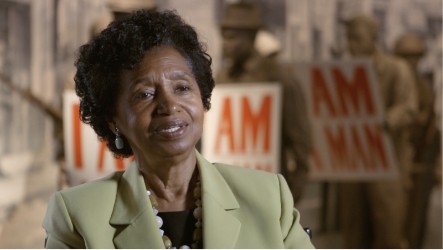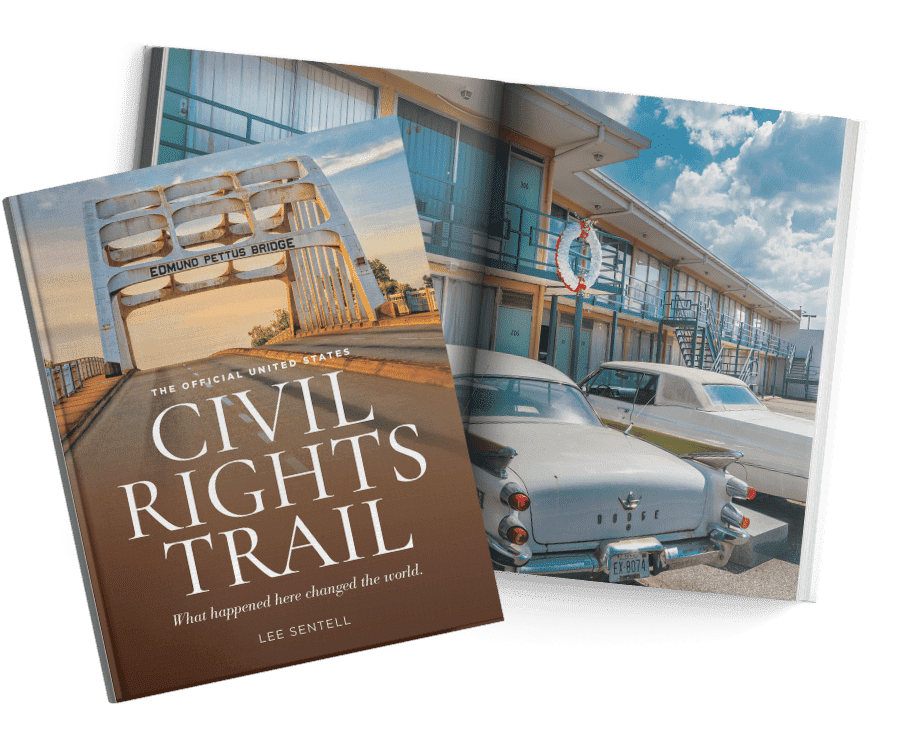Knowledge has the power to shape history and move mountains. Learn about the events that shaped the Civil Rights Movement and you’ll be moved as well.
-
Objects That Became Icons
Sometimes ordinary objects can tell extraordinary stories and offer a window into rich history
LEARN MORE
-
Fred Gray’s Continuing Fight for Civil Rights
By becoming a lawyer instead of a pastor, Fred Gray changed his career path and the course of American history.
LEARN MORE
-
Where Civil Rights Stories Live On
Living Legacies: Civil rights heroes still share their stories
LEARN MORE
-
Following the Footsteps of Civil Rights Giants on your own Road trip
State road trips that highlight civil rights heritage
LEARN MORE
-
Ordinary Citizens, Extraordinary Civil Rights Heroes
Sometimes people don’t know when they’re making history; they were ordinary citizens who answered the call for civil rights.
LEARN MORE
-
Small Towns and their Huge Impact in Civil Rights
Small towns throughout the southeast had roles in changing history.
LEARN MORE
-
The Fight for Integrated Education
A Birthright to Learn and the Fight for Integrated Education
LEARN MORE
-
In Memoriam: Rep. John Lewis
Learn more about one of the most courageous activists of the Civil Rights Movement.
LEARN MORE
-
Marching for the Vote
Step into history as you tread the same path voting rights activists took in 1965 during the marches from Selma to Montgomery.
LEARN MORE
 APRIL 23, 1951
APRIL 23, 1951
FARMVILLE, VA
Walkout at Robert Russa Moton High School
Sixteen-year-old Barbara Johns leads a student walkout of Robert Russa Moton High School in Farmville, Virginia, in protest of the school’s poor conditions.
Learn More
1951
FARMVILLE, VA
 SEPTEMBER 1, 1954
SEPTEMBER 1, 1954
MONTGOMERY, AL
Dexter Avenue Baptist Church
The Rev. Martin Luther King Jr. begins his pastorate at Dexter Avenue Baptist Church in Montgomery, Alabama.
Learn More
1954
MONTGOMERY, AL
 MAY 17, 1954
MAY 17, 1954
WASHINGTON, DC
Brown v. Board of Education
The U.S. Supreme Court rules in Brown v. Board of Education that American public schools should integrate.
Learn More
1954
WASHINGTON, DC
 AUGUST 28, 1955
AUGUST 28, 1955
SUMNER, MS
Emmett Till's Murder
Emmett Till’s funeral and murder trial electrify the civil rights community.
Learn More
1955
SUMNER, MS
 DECEMBER 1, 1955
DECEMBER 1, 1955
MONTGOMERY, AL
Rosa Park's Arrest
Rosa Parks is arrested for refusing to surrender her seat to a white passenger on a Montgomery bus.
Learn More
1955
MONTGOMERY, AL
 JUNE 5, 1956
JUNE 5, 1956
MONTGOMERY, AL
Desegregation of Public Buses
Judge Frank M. Johnson Jr. and the U.S. District Court in Alabama strike down the legality of segregated bus seating. The Montgomery Bus Boycott ends after 12 months.
Learn More
1956
MONTGOMERY, AL
 AUGUST 26, 1956
AUGUST 26, 1956
CLINTON, TN
First Day of Class at Newly Integrated Clinton High School
A group of African-American students – the Clinton 12 – attended their first day of class at Clinton High School, marking the first integration of a public high school in the South.
Learn More
1956
CLINTON, TN
 DECEMBER 25, 1956
DECEMBER 25, 1956
BIRMINGHAM, AL
Bethel Baptist Church
The home of the Rev. Fred Shuttlesworth, civil rights leader and pastor of Bethel Baptist Church, is bombed in Birmingham, Alabama.
Learn More
1956
BIRMINGHAM, AL
 JANUARY 10, 1957
JANUARY 10, 1957
ATLANTA, GA
Formation of the SCLC
Dr. King is named president of the newly formed Southern Christian Leadership Conference.
Learn More
1957
ATLANTA, GA
 SEPTEMBER 9, 1957
SEPTEMBER 9, 1957
WASHINGTON, DC
Civil Rights Act of 1957
President Dwight D. Eisenhower signs the Civil Rights Act of 1957 into law.
Learn More
1957
WASHINGTON, DC
 SEPTEMBER 1957
SEPTEMBER 1957
LITTLE ROCK, AR
Little Rock Central High School
The Little Rock Nine are blocked from entering Central High School by the Arkansas National Guard, and then escorted in by the U.S. Army’s 101st Airborne Division.
Learn More
1957
LITTLE ROCK, AR
 FEBRUARY 1, 1960
FEBRUARY 1, 1960
GREENSBORO, N.C.
Greensboro Sit-Ins
Four Black students stage the first sit-in at a Woolworth’s lunch counter in Greensboro, North Carolina.
Learn More
1960
GREENSBORO, N.C.
 FEBRUARY 13, 1960
FEBRUARY 13, 1960
NASHVILLE, TN
Nashville Sit-Ins
Under the training of activist James Lawson, students begin nonviolent sit-ins in Nashville, Tennessee.
Learn More
1960
NASHVILLE, TN
 MAY 20, 1960
MAY 20, 1960
NASHVILLE, TN
House Bombing Protest Ends at the Davidson County Courthouse
A bomb thrown at civil rights attorney Z. Alexander Looby’s house set off a protest in Nashville. The protest ended at the Davidson County Courthouse and in response to protestor questions, the mayor conceded that segregation was immoral and that the city’s lunch counters should be integrated.
Learn More
1960
NASHVILLE, TN
 JULY 25, 1960
JULY 25, 1960
GREENSBORO, N.C.
Integration of Woolworth's Lunch Counter
Staff at the Woolworth’s lunch counter in Greensboro, North Carolina, serve their first Black customers.
Learn More
1960
GREENSBORO, N.C.
 NOVEMBER 14, 1960
NOVEMBER 14, 1960
NEW ORLEANS, LA
William Frantz Elementary
Six-year-old Ruby Bridges becomes the first Black student to attend William Frantz Elementary in New Orleans, Louisiana.
Learn More
1960
NEW ORLEANS, LA
 NOVEMBER 14, 1960
NOVEMBER 14, 1960
WASHINGTON, DC
Boynton v. Virginia
The United States Supreme Court holds that racial segregation of bus terminals is illegal in that it violates the Interstate Commerce Act.
Learn More
1960
WASHINGTON, DC
 MAY 1961
MAY 1961
ALABAMA
Freedom Rides
Freedom Riders are attacked by angry mobs across the South, including in the Alabama cities of Anniston, Birmingham and Montgomery.
Learn More
1961
ALABAMA
 SEPTEMBER 30, 1962
SEPTEMBER 30, 1962
OXFORD, MS
Desegregation of the University of Mississippi
Desegregation sparks a violent riot on the University of Mississippi campus after Supreme Court Justice Hugo Black orders Ole Miss to admit James Meredith, a Black student, to the university.
Learn More
1962
OXFORD, MS
 APRIL - MAY 1963
APRIL - MAY 1963
BIRMINGHAM, AL
The Birmingham Campaign
Organized by the SCLC and the Alabama Christian Movement for Human Rights, the Birmingham Campaign protests segregation in the city with daily gatherings and demonstrations. Protesters are arrested and attacked with tear gas, fire hoses and police dogs.
Learn More
1963
BIRMINGHAM, AL
 MAY 19, 1963
MAY 19, 1963
BIRMINGHAM, AL
Letter From Birmingham Jail
Dr. King’s “Letter From Birmingham Jail” is issued to the public.
Learn More
1963
BIRMINGHAM, AL
 JUNE 11, 1963
JUNE 11, 1963
TUSCALOOSA, AL
Stand in the Schoolhouse Door
Alabama Gov. George Wallace stands in the schoolhouse door at the University of Alabama to prevent the registration and enrollment of African-American students.
Learn More
1963
TUSCALOOSA, AL
 JUNE 12, 1963
JUNE 12, 1963
JACKSON, MS
Medgar Ever's Murder
NAACP field secretary Medgar Evers is shot in front of his Jackson, Mississippi, home. He dies in a hospital a short time later.
Learn More
1963
JACKSON, MS
 AUGUST 28, 1963
AUGUST 28, 1963
WASHINGTON, DC
March on Washington for Jobs and Freedom
Dr. King delivers his “I Have a Dream” speech before 200,000 civil rights supporters in Washington, D.C.
Learn More
1963
WASHINGTON, DC
 SEPTEMBER 15, 1963
SEPTEMBER 15, 1963
BIRMINGHAM, AL
Bombing of 16th Street Baptist Church
16th Street Baptist Church in Birmingham is bombed, killing four young girls
Learn More
1963
BIRMINGHAM, AL
 NOVEMBER 22, 1963
NOVEMBER 22, 1963
DALLAS, TX
President Kennedy's Assassination
Shortly after noon on November 22, 1963, John F. Kennedy, the 35th president of the United States and originator of the eventual Civil Rights Act of 1964, was assassinated as he rode in a motorcade through Dealey Plaza in downtown Dallas, Texas, in an open-top convertible.
1963
DALLAS, TX
 SUMMER 1964
SUMMER 1964
PHILADELPHIA, MS
Freedom Summer
The Mississippi Freedom Democratic Party forms in April, leading to a large-scale push for voter registration and education in Mississippi.
Learn More
1964
PHILADELPHIA, MS
 JULY 2, 1964
JULY 2, 1964
WASHINGTON, DC
President Lyndon Johnson Signs Civil Rights Act of 1964 Into Law
On July 2, 1964, President Lyndon Johnson signed into law the Civil Rights Act of 1964, the most sweeping civil rights legislation since Reconstruction. It prohibited discrimination in public places and places of employment, and provided for the integration of schools and public facilities.
Learn More
1964
WASHINGTON, DC
 OCTOBER 14, 1964
OCTOBER 14, 1964
WASHINGTON, DC
Dr. King Receives Nobel Peace Prize
Martin Luther King Jr. was awarded the Nobel Peace Prize In 1964. He was recognized for his dynamic leadership of the Civil Rights Movement and his unwavering commitment to achieving racial justice through nonviolent action.
Learn More
1964
WASHINGTON, DC
 MARCH 7, 1965
MARCH 7, 1965
SELMA, AL
Bloody Sunday
Marchers for voting rights crossing the Edmund Pettus Bridge are met with violence on “Bloody Sunday” in Selma, Alabama.
Learn More
1965
SELMA, AL
 MARCH 25, 1965
MARCH 25, 1965
MONTGOMERY, AL
How Long, Not Long
Marchers from across the country successfully complete the journey from Selma to Montgomery, where Dr. King delivers his famous “How Long, Not Long” speech at the state Capitol.
Learn More
1965
MONTGOMERY, AL
 AUGUST 6, 1965
AUGUST 6, 1965
WASHINGTON, DC
President Johnson Signs Voting Rights Act of 1965 Into Law, Guaranteeing Equal Voting Rights for African-Americans
On August 6, 1965, President Johnson signed the Voting Rights Act, guaranteeing Black Americans the right to vote as established under the 15th Amendment to the U.S. Constitution. The Voting Rights Act is considered one of the most important pieces of civil rights legislation in U.S. history.
Learn More
1965
WASHINGTON, DC
 OCTOBER 2, 1967
OCTOBER 2, 1967
WASHINGTON, DC
Thurgood Marshall Swearing In
Thurgood Marshall becomes the first African-American justice of the U.S. Supreme Court.
Learn More
1967
WASHINGTON, DC
 FEBRUARY 12, 1968
FEBRUARY 12, 1968
MEMPHIS, TN
Memphis Sanitation Workers Strike
Sanitation workers in Memphis, Tennessee, go on strike to protest unfair working conditions for African-American employees.
Learn More
1968
MEMPHIS, TN
 APRIL 4, 1968
APRIL 4, 1968
MEMPHIS, TN
Dr. King’s Assassination
Dr. King is assassinated in Memphis.
Learn More
1968
MEMPHIS, TN
 APRIL 11, 1968
APRIL 11, 1968
WASHINGTON, DC
President Johnson Signs Civil Rights Act of 1968 Into Law, Prohibiting Discrimination in Housing
The Civil Rights Act of 1968, signed by President Johnson on April 11, picked up where the previous civil rights acts left off. The legislation achieved a national ban on housing discrimination based on race, religion, national origin, sex and, later, disability and family status.
Learn More
1968
WASHINGTON, DC
keyboard_arrow_down
keyboard_arrow_up
keyboard_arrow_up
keyboard_arrow_down
SKIP TIMELINE
keyboard_arrow_down
{{current_slide_index}} - {{total_slide_count}}
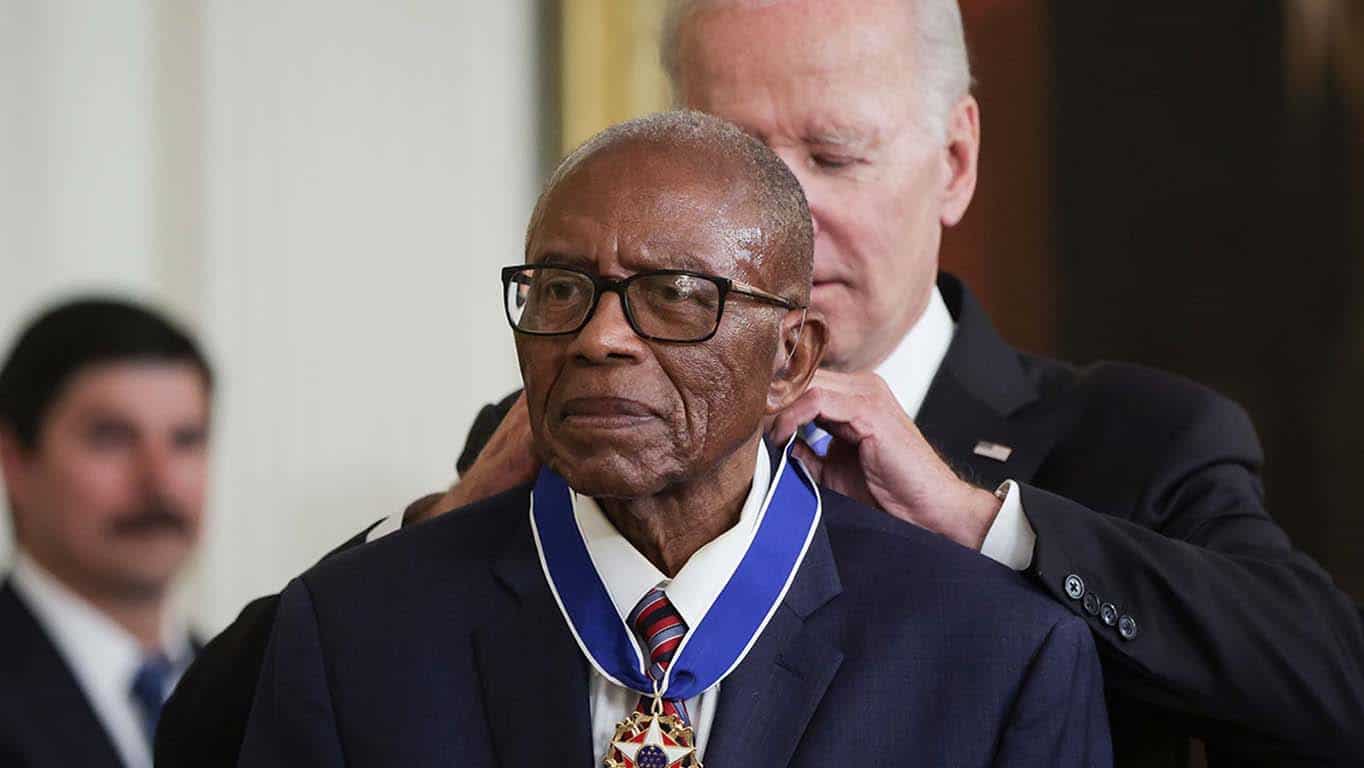
Fred Gray Interview – Tuskegee, AL
-
Wanda Howard Battle Interview – Montgomery, AL
“When the cause for what you believe in becomes greater than the cost, you can answer the call no matter the cost.”
– Wanda Howard Battle
Wanda Howard Battle, tour director at Dexter Avenue King Memorial Baptist Church in Montgomery, Alabama, talks about how the church served as a headquarters for civil rights activists Vernon Johns and Dr. Martin Luther King Jr.
-
Sybil Jordan Hampton Interview – Little Rock, AR
“It was my hopes and dreams and goals, but also my commitment to being in the struggle for my people, being able to keep my head up high.”
– Sybil Jordan Hampton
Sybil Jordan Hampton talks about being a part of the second group of African American students who integrated Little Rock Central High School in Arkansas after the U.S. Supreme Court ruled the segregation of public schools was unconstitutional.
-
Elaine Lee Turner Interview – Memphis, TN
“It didn’t matter whether we were arrested or not. We knew we had to continue the fight.”
– Elaine Lee Turner
Elaine Lee Turner talks about how she and her sisters dedicated themselves to peaceful protests to help the Civil Rights Movement gain momentum in Memphis, Tennessee.

































































































